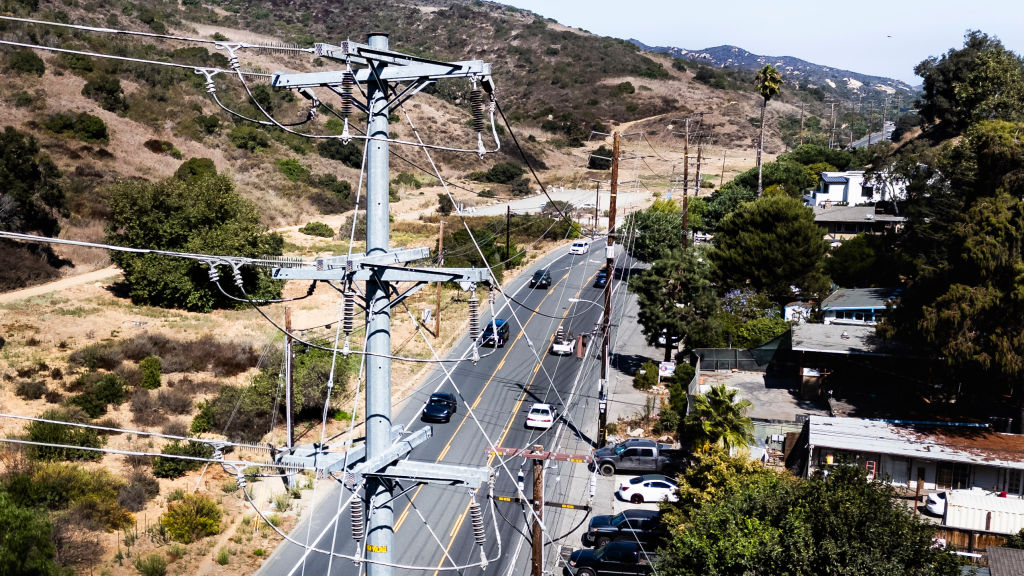If it feels like your energy bills are higher than usual, it is not just a figment of your imagination.
As a heat dome smothers huge parts of the United States, Americans are noticing their electricity prices skyrocket—driven up by increased demand and inflation, among other factors.
[time-brightcove not-tgx=”true”]
More than 60% of Americans said in April that their electricity and/or gas bill had increased compared to a year ago, and nearly three-quarters are concerned that the bills will increase this year, according to a poll marketing and research specialist Ipsos conducted with PowerLines, a nonprofit working to reduce electricity prices. Just 3% said their bill had decreased.
The increases appear to have only continued in the months since then, hitting Americans across the country—but especially in the Western U.S. PowerLines found in a new report that U.S. electric companies have asked for $29 billion in rate increases so far this year, more than double their requests for the first half of 2024. It notes that Western utilities are “particularly” impacted, having asked for more than $4 billion in raised rates.
“Improvements to aging infrastructure are cited as a major driver of the increases in the region,” PowerLines says, pointing to upgrades made in response to the increase in extreme weather and climate emergencies over the past few years that it notes has “burdened” the electric grid. Many businesses and energy industry leaders are now looking to find ways to make the U.S. power grid more sustainable for 21st century power usage.
Demand for energy is also growing as the 2025 summer proves exceptionally hot, with high humidity intensifying the heat. A heat wave has been baking large swaths of the U.S. in the past week, prompting the National Weather Service (NWS) to issue major heat advisories across the country.
Energy company Con Edison warned earlier this summer that it was working to meet increased demand for summer air conditioning and that prices would rise, and in June, the U.S. Department of Energy had to release an emergency order to allow Duke Energy to exceed the emissions limits laid out in its power plant permits in order “to preserve the reliability of the bulk electric power system.”
Extreme heat is only becoming more common as the climate changes. According to Climate Central, a nonprofit that works to research climate impact, the heat wave that hit much of the U.S. in late July was level five on the company’s Climate Shift Index (CSI), meaning it found that “human-caused climate change made this extreme heat at least five times more likely.”
Inflation appears to be playing a role in increasing rates as well. An in-depth analysis on electricity expenses that the U.S. Energy Information Administration (EIA) also shared earlier this year, found that between 2013 and 2023, electricity prices closely mirrored inflation rates. The agency explained, however, that it expects “increases in electricity prices to outpace inflation through 2026,” as demand continues to grow.
The analysis explains that U.S. energy prices increased significantly between 2020 and 2022 as a result of the COVID-19 pandemic and Russia’s invasion of Ukraine due to disrupted supply chains and market volatility, but while gasoline prices have bounced back to more reasonable levels, electricity prices have not, as temperatures rise, and power grids remain strained. As large companies work to meet increased demand, prices are mirroring the need.
The Senate Energy and Natural Resources Committee held a hearing regarding concerns about rising energy demand on July 23, where New Mexico’s Democratic Sen. Martin Heinrich argued that meeting the growth will require “structural changes to how we permit and build our energy infrastructure,” including specifically clean energy projects.
“[E]lectricity bills are becoming unaffordable for too many Americans,” Heinrich said, pointing to states like California and Texas where he says “high levels of renewable energy do not compromise grid reliability—in fact, they improve it.”

